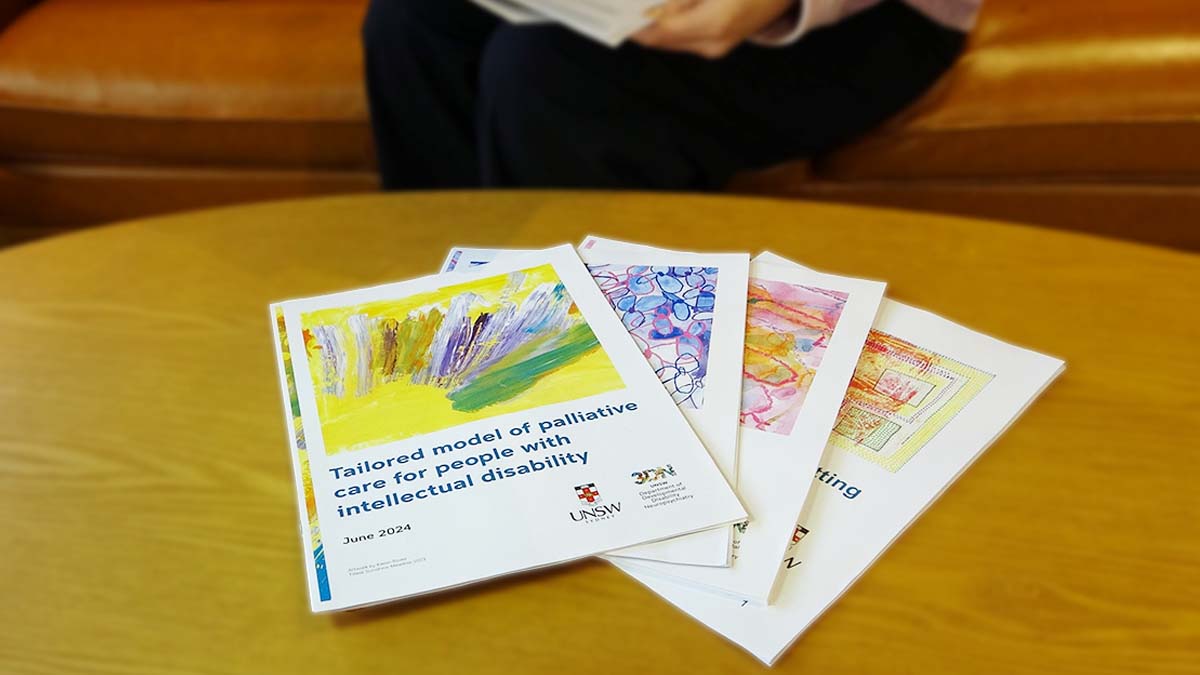Download Easy Read version
People with intellectual disability face multiple barriers to accessing quality palliative care. We have been working on a mixed-methods study of palliative care for people with intellectual disability, and have translated our findings into a model of care and supporting toolkits.
We have toolkits and resources for health professionals, and for people with intellectual disability and supporters (including carers). All materials can be downloaded for free.
"Palliative care improves the quality of life of people with life-limiting conditions such as cancer and other chronic health conditions," says researcher and project spokesperson, Dr Rachael Cvejic.
"People with intellectual disability are experiencing increasing rates of these conditions, and it is critical that palliative care services are equipped to meet their needs. Yet there has been a lack of guidance for health services in Australia on how to meet the palliative care needs of people with intellectual disability."
"We hope that health professionals, people with intellectual disability and their supporters will use these toolkits and resources to help people with intellectual disability to get quality palliative care."
Get the toolkits and resources
There are several toolkits and resources, many of which are in Easy Read.
- Tailored model of palliative care for people with intellectual disability
The tailored model provides a framework for the delivery of tailored, quality palliative care for people with intellectual disability in Australia.
- Toolkit for health professionals
The Toolkit provides guidance on improving palliative care for people with intellectual disability and has been developed to support the implementation of the model of care.
- Toolkit people with intellectual disability and supporters
The Toolkit is in two parts with information and linked resources to help people with intellectual disability get good palliative care.
- Easy Read story
The Easy Read story is about a person called Joe getting good palliative care. The story aims to help the reader to understand what good palliative care is based on the model of care.
We hope this innovative project provides guidance for clinical practice, service design, policy and research, contributing to improved palliative care for people with intellectual disability in Australia.
About the project
These toolkits are an output of a project titled Improving Palliative Care Services for People with Intellectual Disability, which was funded by the Australian Government Department of Health and Aged Care This project was funded by the Australian Government Department of Health and Aged Care.
The project was led by UNSW Sydney in consultation with a Project Advisory Group comprising people with intellectual disability, supporters of people with intellectual disability, and representatives from health, disability and advocacy services.


